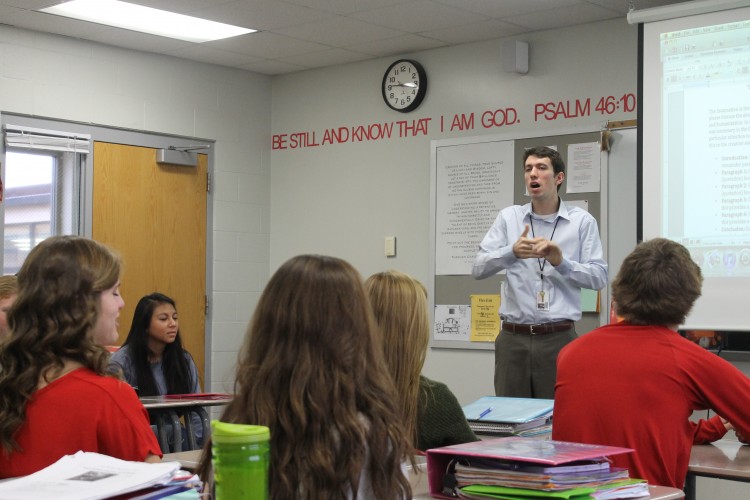The dramatic shift in the religion department three years ago removed a very popular class from the religion curriculum: Death and Dying. Although the course is no longer available, students will not miss out on the fundamental topics covered in the class. The Benilde-St. Margaret’s religion department has integrated many of the key concepts from Death and Dying back into the religion curriculum and hopes to expand them second semester with discussions through senior peer ministry.
Death and Dying originally started in 1980 with Father Tom Andert, the President of the school at that time. “[Death and Dying dealt] with any type of loss because we all—from the moment we were born––begin losing. It’s just being able to deal with that,” head of Campus Ministry, Mr. Mike Jeremiah said.
Three years ago, the U.S. Conference of Catholic Bishops issued the “Doctrinal Elements of a Curriculum Framework,” a document outlining the required concepts and main themes that must be covered in religion classes in Catholic schools across the country. This was part of a large movement to ensure that all Catholic schools have a uniform religion curriculum. As a result of the changes, the Death and Dying class was cut from the BSM curriculum.
“The reality is [that] everybody has had some loss of some sort, and…that we’re all going to die someday,” religion teacher Ms. May Lane said. The religion teachers realize this actuality and feel it is important that the topic of loss is still addressed.
It is the goal of the religion department to integrate many of the concepts from Death and Dying into the current religion classes.
Paschal Mystery, the new religion class taken by sophomores, serves as the best class to reintroduce the fundamental lessons taught in Death and Dying. Many of the topics covered are very similar to the theo- logical aspects of Death and Dying. “We talked about the more theological questions like ‘why is there suffering?,’ ‘where is God?,’ ‘would you want a life without suffering, or is the drama necessary?’ Most kids will say [they] like the challenge, and it can make [them] stronger or it can’t,” Ms. Lane said.
Not only will the religion classes capture the key concepts of Death and Dying, but Campus Ministry, working with senior peer ministers, hopes to have evening meetings and discussions starting second semester. These evening discussions will be open to other grades to attend but will not be mandatory. “It’s open for anyone who wants to come, mainly for [senior peer ministers] as an intro to life skills as you graduate,” Mr. Jeremiah said.
While the new approach to the topics of death and dying is more conversational, the discontinued class was mostly a hands-on experience of how to cope with loss. Students took field trips to firmly grasp the life skills and coping portion of the class. “It was really a hands-on class, like taking a tour of the mortuary and going to the room where all the caskets are,” Mr. Jeremiah said.
The goal now is for students to be able to feel comfortable dealing with the death of a loved one, to answer personal questions, and to know how to react when a friend loses someone.






































![Teacher Lore: Mr. Hillman [Podcast]](https://bsmknighterrant.org/wp-content/uploads/2025/03/teacherlorelogo-1200x685.png)




